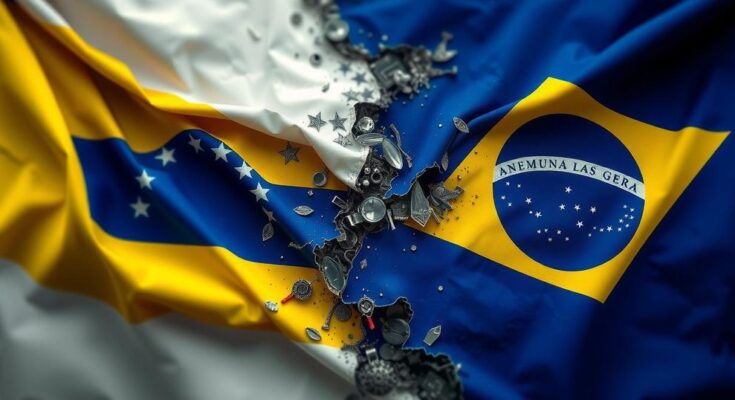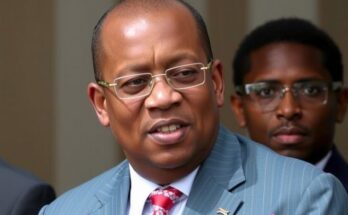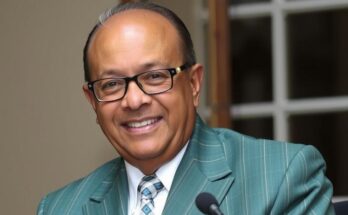Venezuela has recalled its ambassador from Brazil following accusations against Brazilian officials for blocking its BRICS membership bid and making disrespectful statements. The diplomatic spat has intensified amid Venezuela’s internal election controversies and Brazil’s refusal to recognize President Maduro’s claim to victory. The situation reflects deepening political rifts and human rights concerns in Venezuela, compounded by international responses to the unfolding crisis.
Venezuela has officially recalled its ambassador from Brazil following a diplomatic dispute stemming from its unsuccessful attempt to join the BRICS alliance. The Venezuelan Foreign Ministry has publicly condemned Brazilian officials for what it describes as “interventionist, rude statements” regarding the veto of the country’s BRICS membership bid, which was affirmed during a recent summit in Kazan, Russia. The ministry described Brazil’s actions as a significant diplomatic affront, stating, “The Venezuelan people feel indignation and shame at this inexplicable and immoral aggression.” Adding to the escalating tensions between these neighboring South American countries, Venezuela’s decision coincided with Brazil’s President Luiz Inacio Lula da Silva’s refusal to recognize President Nicolas Maduro’s controversial election, which took place on July 28 amidst allegations of significant voting irregularities. In light of the growing grievances, Venezuela has also summoned Brazil’s business envoy for discussions. Brazilian officials, particularly Celso Amorim, Brazil’s top foreign policy adviser, have defended the vetoed membership by alleging that Venezuela “breached the trust” of BRICS partners. In response, Venezuelan officials accused Amorim of acting as a “messenger for North American imperialism” and of overstepping by making unwarranted evaluations regarding the internal political landscape of Venezuela. The political landscape remains particularly volatile as opposition figures have contested Maduro’s election outcome, pointing to alleged misconduct in the voting process. The turmoil has led to international recognition of the opposition leader, Edmundo Gonzalez, who fled to Spain seeking asylum after being accused of sedition. Amidst the ongoing unrest, Human Rights Watch has reported violent crackdowns on demonstrators, with numerous casualties resulting from state actions, further complicating the already tense relations between Venezuela and Brazil.
The BRICS group is a coalition of major developing nations, originally composed of Brazil, Russia, India, China, and South Africa. The alliance has expanded to include Iran, Egypt, Ethiopia, and the United Arab Emirates. Venezuela’s aspirations to join this influential bloc have been thwarted recently, heightening diplomatic tensions with Brazil. The situation is exacerbated by the political climate in Venezuela, where President Nicolas Maduro’s administration faces severe allegations of election fraud and human rights abuses, leading to diminishing support from key regional players. Brazil’s historical ties with Venezuela stem from the socialist legacy of former leaders, but Brazil’s current government has taken a more distancing stance due to perceived irregularities in Venezuela’s political processes.
In conclusion, Venezuela’s recall of its ambassador from Brazil highlights the escalating diplomatic tensions between the two nations, largely fueled by Brazil’s blockade of Venezuela’s BRICS membership bid and the controversial results of Venezuela’s recent elections. As both countries navigate this delicate situation, the implications for regional relations and international partnerships remain complex and fraught with uncertainty. The ongoing political strife within Venezuela, coupled with human rights concerns, adds further layers to this diplomatic rift.
Original Source: www.aljazeera.com




